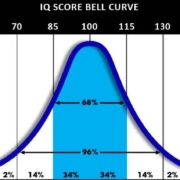
Temperatures are dropping. Snow is falling. Could it be that time of the year again? Yep, you guessed it. Time to think about Summer School! [We’ll get back to why we need to think about this now that the leaves are off the trees]. To be more precise, it’s called Extended School Year (ESY) programs and services and it’s not the same as summer school. The Individuals with Disabilities Education Act (IDEA) requires that states ensure that ESY services are available as necessary to provide a Free Appropriate Public Education (FAPE) for children with disabilities.
ESY services are defined as special education and related services that are provided to a child with a disability, beyond the normal school year, in accordance with the child’s Individualized Education Program (IEP), with no cost to the parents.
Maybe your Committee on Special Education (CSE) has told you that “we don’t give summer services to kids with your child’s classification.” Or maybe they’ve told you, “we don’t have to provide that service over the summer.” Well, federal law specifically states that Districts cannot limit ESY services to a particular category of disability, nor can they “unilaterally limit the type, amount, or duration of those services.”
Every state has some regulations concerning ESY, but we’re going to focus on New York. Often parents ask me if their child is entitled to ESY. We should start with the reason behind these services, which is to prevent substantial regression. What’s “substantial regression?” I’m glad you asked. Essentially, it’s the inability of the student to maintain the developmental levels she worked so hard to achieve during the school year. Does your child lose skills or knowledge over the summer break? Then he may be entitled to summer services. You may say, “But wait Lloyd. Doesn’t every kid regress over the summer? I mean, that’s why teachers spend so much time in September reviewing what their students learned the previous year.” Of course. That’s why New York looks at both quantitative and qualitative information when considering ESY. Qualitative considerations tend to apply more to children with severe multiple disabilities who have highly intensive management needs and require a high degree of individualized attention and intervention. It may include students in residential or hospital programs.
Most parents asking me about ESY do not have children with such significant “qualitative” issues. The parents who come to me are usually concerned about their kids regressing in reading or math or some other academic skills, though it’s important to note that regression in other areas, such as social/emotional, Occupational Therapy, Physical Therapy, among others, may also warrant summer services. New York State recognizes that the typical student may require between 20 and 40 school days to regain the skills and knowledge lost over July and August. This is the “quantitative” consideration. Therefore, as a guideline for determining eligibility for an ESY program, “a review period of eight weeks or more would indicate that substantial regression has occurred.”
This brings us back to why we are thinking about the summer while we are in November (though, admittedly, I’m a couple weeks late). If you think you’ll want summer services for your child this year, and you think your District may give you a hard time, request that your District assess your child now. It doesn’t have to be a full evaluation; a so-called benchmark assessment may be enough. Generally, something similar is done at the end of the school year to assess how much progress the student made during the year, so you can compare the two results. For instance, if your child was reading at a “Level L” at the end of the last school year and is now still only reading at a “Level K,” you have an excellent argument for ESY services.
In my next installment, I’ll discuss what’s available for ESY services. But for now, start thinking about summer and contact your student’s teacher, related service provider, or CSE and ask to see how his progress is.








